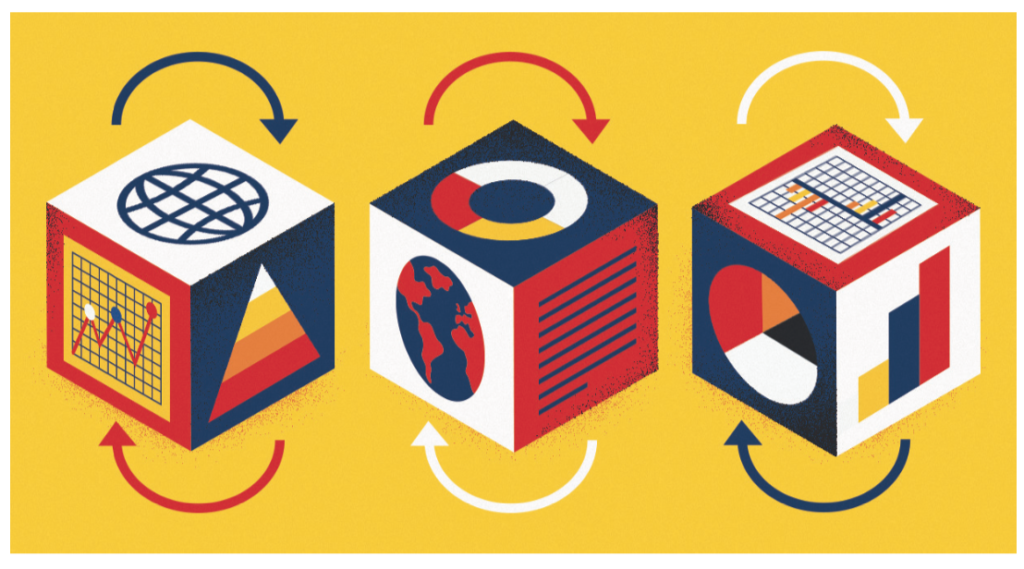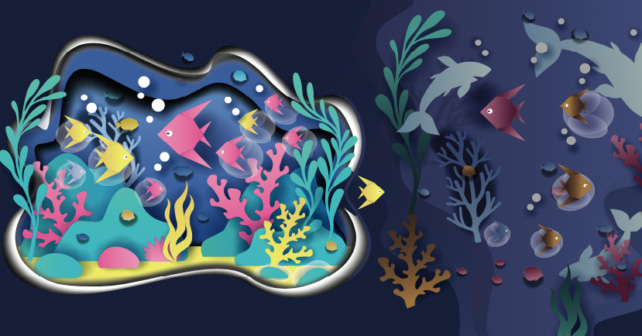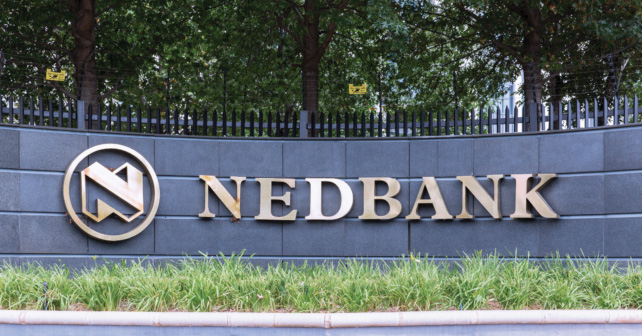A far-reaching leadership development program at pharma giant Merck serves as a case study in dissolving boundaries and transforming culture from the bottom up.
Nearly a decade ago, senior leaders at Merck took a measured look at the company and determined its approach to leadership development had to change. It seemed as if the world outside Merck was transforming faster than the company itself. Several business challenges were hurling towards them: new technology, a product pipeline drought, new business models, shifting customer needs, double-digit growth in emerging markets, and new competitors.
Carl Segerstrom, now vice-president, human resources, at Merck Manufacturing, was one of the founders of the new approach. “We were skilled at building US and Western European talent in their function – manufacturing, human health or research. What we needed instead were general managers who could see, understand and manage the whole business. We wanted to build a globally diverse leadership cohort and break the mold of expert leaders in their function.”
David Howe, now executive director, leadership and global function learning, was also involved. “Merck is large and complicated. To lead effectively you need to understand the breadth of the global business and how things get done. You need a well-rounded perspective and to be able to see challenges from different angles, not just from the perspective of one function. We had leaders who were excellent in their function, or their country, but this isn’t how we compete and win in the market.
“We decided to take individual contributors who are early in their career at Merck and give them breadth, to develop the leaders we wanted for the future: agile, able to identify opportunities through new technologies and partnerships, able to pivot.”
Merck decided to make a long-term play: a robust and sustained effort to develop leaders for the future, leaders able to see beyond their day job, change agents who could break down silos and push the organization forward. Patrick Bergstedt, head of global marketing and international commercial operations (vaccines), has been a senior line advisor to the program since the outset. “We have traditionally been a US-based, US-driven company, but times have really changed. For example, in the vaccines business we are having more of a global impact. More of the volume and doses are distributed and sold outside the US today. The General Management Acceleration Program is helping us to develop truly global leaders.”
The General Management Acceleration Program (GMAP)
Merck chose Duke Corporate Education as its educational partner to develop GMAP. Some design principles were fairly standard for a global company with a strong history of leadership development. They wanted educational workshops at regular intervals; face-to-face learning would be complemented by virtual learning; participants were to have coaching, as well as each being supported by a senior leader on a specially-established Line Advisory Board; and participants would work in small groups on action learning projects, designed around real business challenges.
They also adopted some very different design principles, demonstrating how serious Merck was about investing in change. As Carl Segerstrom explains: “Our classic approach had been to manage people’s careers for them, but we felt that we were missing hidden gems. So instead, we invited people to apply for the program and then put them through a world-class selection process. We only wanted a handful of candidates each year, about 15.” There are 350 or more applications for each year’s cohort – it’s harder to be accepted onto GMAP than it is to enter an Ivy League university.
The rigorous application process includes a cognitive assessment, leadership assessment, business case and several structured interviews. The process works: there is a positive correlation between success in each round and career development. GMAP alumni make more career moves, vertical and lateral, and are regarded as having higher potential.
The second unusual aspect of the program is its length – two years – and what it demands of participants. The company wanted GMAP participants to get real experiences and own their business outcomes. In their first year, they take a job outside their function. In the following year they undertake a second rotation, moving outside their country and into a third function.
Linda Garrett, key talent leadership learning, explains the impact of these placements. “When participants move outside their country, there is an exponential growth. They are tested and their grit and resilience emerge. Early feelings of panic and fear of the unknown are part of this growth. Sometimes the unknown just has to be figured out – that tenacity and patience has to be learned, not taught.”
Bergstedt agrees. “The outside-function and country placements really develop resilience. It’s phenomenal to see how the participants adapt and bring fresh perspective.”
Sahm Nasseri, promoted after the program to executive director, human health strategy, is both a program alumnus and a current GMAP assignment manager with a participant assigned to work for him. He goes further: “GMAP is not just a professional development experience. The overseas rotation took me and my family longer to settle in than expected – the whole 12 months – but the benefits for the whole family made it a standout part of the experience. You don’t always get the opportunity as an adult to make new friends and a new network, to learn and develop and thrive. I’d call this a family program of learning and development.”
Hard-won success

GMAP challenges many of the traditional precepts of leadership development in Merck. Previously, participants were selected to attend a program; served time in role, in one function and country; and were eventually promoted. GMAP follows a very different process. Understandably, there was resistance. Segerstrom faced early pushback. “Building cross-border talent was so different to development paths in traditional Merck, I had to make so many presentations to create sponsorship. After seven years, it’s a well-known brand, it’s cool to see. We also know that post-program retention has increased in this talent pool.”
Alexandra Fucik, director of talent development and GMAP, remembers when she first heard about the program. “I thought it was elitist and costly. What was the point in taking people off their normal career path for two years? When I joined the program in October 2018, I was asked to make an assessment – could we justify the cost? So I looked at the metrics and yes, we are starting to see successful career acceleration after GMAP. But more than that, we now have a cadre of alumni all over the world who understand that we need to break down silos and act as one company to continue to be successful.”
Caroline Litchfield, senior vice-president treasury, tax and investor relations, was closely involved in the design of GMAP and is its executive sponsor, as well as one of the first Line Advisory Board (LAB) members. “We created a high bar to join an elite program and then put them through fast-track development. Unfortunately, this created a bit of an entitlement mindset which we had to work through – we need our participants to work with others, as well as to grow individually, and we need managers to understand the value that they can bring.”
Tracey Franklin, vice-president chief HR talent and strategy officer, and a senior executive on the LAB, agrees. “A sticking point is how fast GMAP alumni expect to progress versus a mid-level manager who has ticked all the boxes. We need to encourage managers to change the way we think about talent and take a risk in hiring a GMAP alumnus without the traditional experience.”
Critical role of GMAP managers
Sahm Nasseri had to make a major presentation on HPV – human papillomavirus – strategy after only two weeks in the role. Following his GMAP experience, he was able to present it in the context of the whole Merck strategy, including the advantages for shareholders and broader stakeholders. “This is important. In a huge company like ours there are lots of little companies, and if you act in isolation, Merck misses out,” he says. Nasseri believes that effective development through GMAP depends to a large extent on the assignment manager. An apprenticeship takes energy, and the manager needs to invest. “You may have gained a ‘free’ resource, but it takes time to help your GMAP participant to add value. The investment is justified – today, GMAP alumni have become the go-to talent pool for high-impact opportunities in Merck.”
Caron Li, managing director, Hong Kong, agrees that the role of the GMAP assignment manager is critical. Merck has taken great care in choosing candidates’ assignment managers, because they understand the exceptional talent it takes to be accepted onto the program and the investment required to nurture that talent. “My participant can ask for my guidance on any issues and we spend a lot of time in discussion. I think a good assignment manager needs to be open-minded and a good coach. You also need to be flexible, as project work means time away from the day job. Even in her first year, I can see that her mindset has broadened, and she has asked me questions about her project that I couldn’t answer – so I am learning from her too.” Even though the participants are the focus of learning, their ability to look across the business and ask different questions means that others grow and learn alongside them.
Bergstedt has the same experience of learning. “It’s helped me personally to overcome my own Western bias. Recruiting our first participants in Asia Pacific, I had to unlearn stereotypes – being calm and reflective doesn’t mean that an individual is laid back or unassertive. Exceptional talent presents in different cultural ways around the world.”
Katharina Ruprecht is GMAP senior specialist, global market access vaccines – note how GMAP is included in her job title while attending the program – and currently a second year GMAP participant. She is an example of how the program is meeting its aims. “My first assignment was in manufacturing. Before that, when I was in marketing, I used to give my manufacturing colleagues a hard time on delays. Now I understand how complex manufacturing is and see how everyone gives more than 100% to try to get it right. I felt bad about my past complaints and went back to my former manufacturing colleagues and apologized. I have learned to ask, rather than assume. I may not be able to break down silos, but I can connect them.”
Unexpected outcomes
The metrics and personal testimonies alike show that GMAP is having a positive business impact, with several alumni, including Nasseri, having accelerated into executive roles. Litchfield relishes the opportunity to develop talent and sees the rotation through GMAP as a way of giving colleagues deeper insight into the finance function and also for importing fresh perspectives into finance, joining up Merck. She acknowledges that the program’s success has brought both challenges and unexpected outcomes. “We didn’t foresee how hard it would be to place GMAP candidates into the business. Potential assignment managers saw them as ambitious and acting beyond their capability – what they wanted were ‘plug and play’ candidates. Putting alumni back into the business in year three is equally challenging. Our middle management culture needs to shift.”
Indeed, the biggest unexpected outcome is how participants’ broader, enterprise-wide outlook is starting to shift Merck’s traditional, hierarchical and rather conservative culture. When a company seeks culture change, one lever is deliberate development of the most senior leaders, from the chief executive down. In contrast, GMAP started out as an acceleration program for a tiny handful of middle management talent. After seven years, there are still only around 100 alumni compared with a total Merck workforce of 70,000, yet GMAP’s strong, globally-connected alumni community is challenging the executive to change.
Litchfield never expected this to be a culture change program. “I saw this as a talent development strategy for enterprise leadership. We didn’t connect the dots across the business as we should have, and our aim was to give talented middle managers that breadth. Today, I see the GMAP community challenging our senior leaders in a way that you didn’t see in hierarchical Merck. Our CEO has heard from them the message that it will take more than GMAP alone to change our culture, and we are focused on that.”
Others agree. Linda Garrett views culture change as a wonderful by-product of GMAP, while Tracey Franklin says: “By multiplying these talented employees with a different mindset across the world, we are seeing grassroots cultural change. Merck is like so many other large companies, steeped in tradition and with a tendency to look back to a successful past to dictate the future. As the world changes, we need different behaviors and I see the GMAP alumni challenging the status quo with confidence, fortitude and an energy we didn’t have before. We need to place the greater good for Merck in the forefront and I see them doing this.
“Twice now I have run off-sites for our top 200 to work through strategic issues and then repeated the exercise with GMAP alumni, who have really innovative ideas. I feed these ideas back to our senior executives, so that we can incorporate them and use the collective thought power of this group to help shape the future of our company.” GMAP alumni continue to ‘pay it forward’. They have been involved in multiple strategic initiatives and are likely to continue to be so, reinforcing new ways of working.
Current participant Katharina Ruprecht concludes: “We are change agents – we follow the current mission while creating the future at the same time. We are not afraid of the challenge.”
— Megan Yuan is associate director, global oncology policy, at Merck. Liz Mellon is the former chair of Dialogue’s editorial board. An adapted version of this article appeared on the Dialogue Review website.



